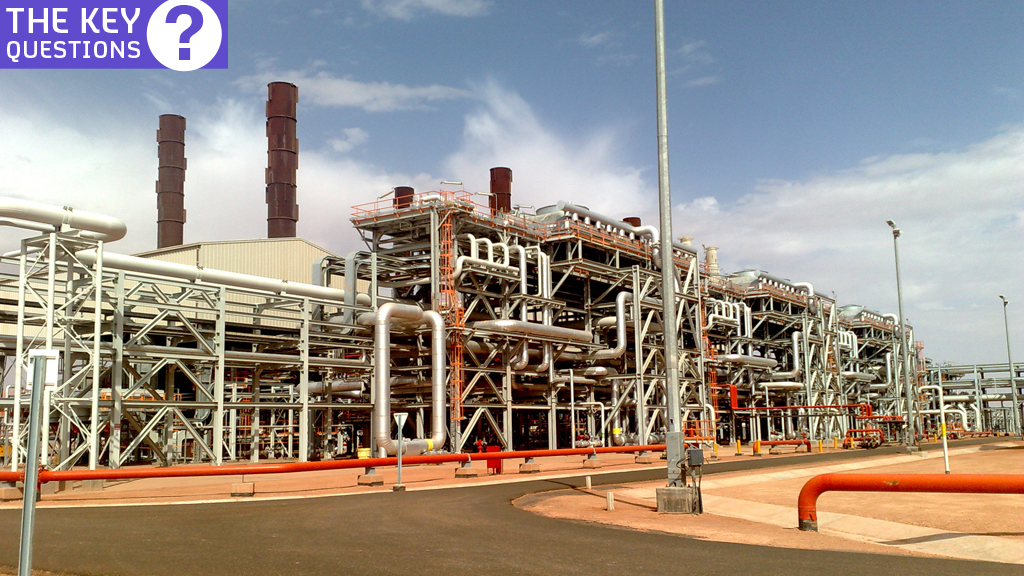Hostage drama in Algeria – the key questions
As the Algerian operation continues to free western hostages kidnapped by Islamist militants at a gas plant in the Sahara, Channel 4 News looks at the events that precipitated the crisis.

Today, David Cameron told the Commons that while the situation remained grave, fewer Britons than initially thought had been taken hostage.
Scottish First Minister Alex Salmond said a number of Scots held hostage were now “safe and well”.
What happened before the hostages were taken?
On Wednesday, two people – one from Britain, the other from Algeria – were killed when their bus was attacked by militants while it was being driven to In Amenas airport, near the gas plant. Two other Britons were wounded.
What happened after the bus attack?
The attackers drove to the gas plant, which is jointly operated by BP, and took hostages. The Algerian government responded by sending military helicopters to the site, leading to a firefight with the hostage takers.
How many people were taken hostage?
Forty-one foreign workers at the plant were reported on Wednesday to have been taken hostage, including “a number of” Britons, several Americans and Japanese and nine Norwegians.
The prime minister told MPs that 30 British citizens were believed to be “at risk” last night, but this number had now been “quite significantly reduced”.
What has happened to the hostages?
This is unclear at the moment. Stephen McFaul, from Belfast, managed to escape after the vehicle in which he was being transported by the kidnappers came under fire from the Algerian military and crashed. He said the other vehicles in the convoy were destroyed.
The Algerian government said “a large number of hostages” had been freed, but “there were some deaths”. According to Algerian media reports, two Britons and two Filipinos were killed.
The kidnappers have said that at least 35 hostages are now dead, along with 14 kidnappers. They said they were killed by fire from Algerian helicopters.
Reuters is reporting today that 18 foreign hostages have yet to be accounted for.
Who is responsible for the kidnappings?
Mokhtar Belmokhtar, a former al-Qaeda leader, has claimed overall responsibility for the operation. He now heads his own group, the Masked Brigade. In the Commons, Mr Cameron confirmed that he was the ringleader.
The jihadi leader on the ground, Abu al-Baraa al-Jazairi, is reported to have been killed during the Algerian raid.
Why did Mokhtar Belmokhtar order the attack?
The hostage takers have said they were seeking revenge for the current French military intervention in Mali and Algeria’s decision to allow the French to use their airspace.
Like many others, Foreign Secretary William Hague was sceptical about these claims, saying that the kidnapping was likely to have planned before the French operation began.
The kidnappers are likely to have been motivated by anti-western ideology, perhaps with ransom money in mind: Belmokhtar is known as a criminal as well as a jihadist.
How did the Algerian government respond to the kidnappings?
On Thursday, the Algerian military mounted an operation to end the siege.
Algerian Interior Minister Daho Ould said the militants had wanted to leave the country with the hostages, but his government had refused to negotiate.
David Cameron told MPs he was only informed by the Algerians after the attack had started. Britain and the US had offered support to the Algerian government, which was not taken up.
Why did Algeria do this?
After the civil war in the 1990s, the Algerian government wanted to demonstrate that Islamist militants were no match for its military might.
This message was aimed at foreign governments and companies like BP, which are involved in the Algerian oil and gas industry.
Algeria was once a French colony, but achieved independence in 1962.
Nigel Inkster, a former senior British intelligence official said: “The Algerians are very, very prickly about their sovereignty.
“I don’t think they were remotely inclined to consider or accept any of the advice or capabilities that were on offer.”
During the Arab Spring, protests in Algeria were put down by the government of President Abdelaziz Bouteflika, who is still in power.
He did not meet the same fate as other Arab leaders in Tunisia, Egypt, Libya and Yemen.
Are there likely to be other kidnappings?
Militants have kidnapped tourists in north and west Africa in the past, but this sort of audacious attack on a gas installation is a departure.
Graham Hand, a former British ambassador to Algeria, said: “There are many, many oil and gas installations in the Algerian desert and I am not aware of any serious occurrences previously for years.”
The kidnappers are warning locals to stay away from foreign companies’ plants in Algeria because more attacks are planned.
-
Latest news
-
Mark Menzies: is UK politics full of scandal?33m

-
Windrush scandal: returning to the UK after a forty year wait6m

-
Netanyahu ‘survival’ depends on ‘expanding war’ says head of Palestinian National Initiative5m

-
Proposed law change could strip parental rights from paedophiles5m

-
Hugh Grant settles privacy lawsuit against The Sun newspaper publisher2m

-




